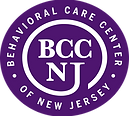top of page

Training Schedule (all in EST and virtual)
September 19, 2025, and September 26, 2025 12:00 noon - 3:00 pm EST
Day 1: Overview dialectical dilemmas (Linehan, 1993), including the heart of the problem, challenging context that elicits secondary target behavior, and therapist traps (Axelrod, Gold, & Decker, under review). In small groups, develop case formulation for a client, including therapist responses that may serve to reinforce secondary target behavior consistent with the transactional model. Homework: continue developing case formulation for a client.
Day 2: Review the steps of the Acceptance and Change Protocol to intervene when secondary target behavior occurs: counter polarized behavior, then correspond by meeting the valid need; follow with insight strategies and enhanced treatment planning. After viewing demonstration, practice in small groups. Homework: update case formulation with plan for what to do when secondary targets appear.
bottom of page


